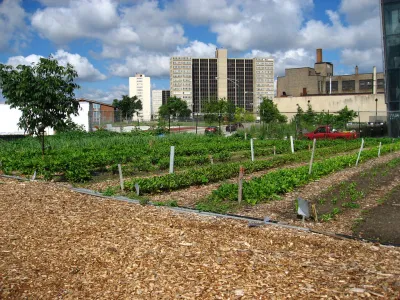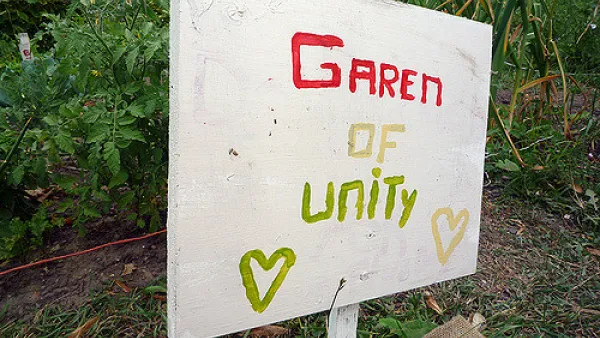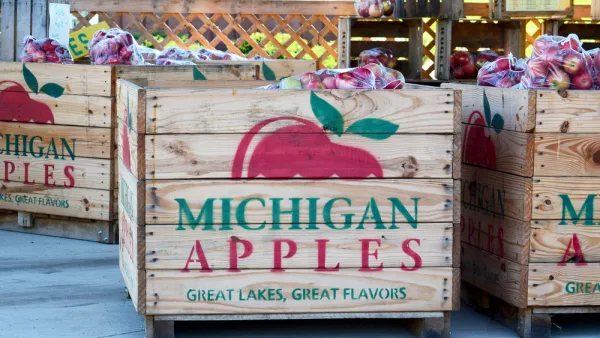By a narrow vote, Detroit's City Council has given approval for the city to sell 140 acres of vacant land to financial services business owner John Hantz for the creation of an urban agriculture project. Some are calling the deal a "land grab."

After four years of negotiations with the city, and vocal public opposition, plans by Detroit to sell 1,500 city-owned plots for $520,000 to John Hantz for the creation of his ambitious "Hantz Woodlands" project were narrowly approved by the City Council this week, reports Steve Pardo. The first phases of the project will see the demolition of structures, removal of trash, and title work (at a cost of $3.2 million) and the planting of at least 15,000 trees that "would eventually be used for commercial purposes" once the city passes an urban agriculture ordinance.
Although Mayor Dave Bing "said the project is in line with his vision of transforming vacant and underutilized parcels," Pardo notes that, "[f]oes have questioned the sale price, accused Hantz of getting special treatment and questioned the wisdom of allowing one firm to own so much land."
According to Susie Cagle, writing in Grist, the supposedly "vacant" land may not be deserted after all: "In These Times reports that about 100 people still live in the areas that Hantz plans to demolish, clean, and plant full of trees by next spring."
Despite opposition to the Hantz project, "Detroit’s community garden and urban farming scene is positively blooming, and it stands to grow even more in 2013," says Cagle. "Last week, the city’s Planning Commission approved a new zoning ordinance that would officially recognize the city’s gardens and farms, as well as create new ways forward for creating larger farms and reusing vacant buildings. The new rules would also allow for sale of the goods and produce grown. The City Council will vote on the new rules in January."
FULL STORY: 140 acres in Detroit sold to grow trees

National Parks Layoffs Will Cause Communities to Lose Billions
Thousands of essential park workers were laid off this week, just before the busy spring break season.

Retro-silient?: America’s First “Eco-burb,” The Woodlands Turns 50
A master-planned community north of Houston offers lessons on green infrastructure and resilient design, but falls short of its founder’s lofty affordability and walkability goals.

Delivering for America Plan Will Downgrade Mail Service in at Least 49.5 Percent of Zip Codes
Republican and Democrat lawmakers criticize the plan for its disproportionate negative impact on rural communities.

Test News Post 1
This is a summary

Test News Headline 46
Test for the image on the front page.

Balancing Bombs and Butterflies: How the National Guard Protects a Rare Species
The National Guard at Fort Indiantown Gap uses GIS technology and land management strategies to balance military training with conservation efforts, ensuring the survival of the rare eastern regal fritillary butterfly.
Urban Design for Planners 1: Software Tools
This six-course series explores essential urban design concepts using open source software and equips planners with the tools they need to participate fully in the urban design process.
Planning for Universal Design
Learn the tools for implementing Universal Design in planning regulations.
EMC Planning Group, Inc.
Planetizen
Planetizen
Mpact (formerly Rail~Volution)
Great Falls Development Authority, Inc.
HUDs Office of Policy Development and Research
NYU Wagner Graduate School of Public Service




























